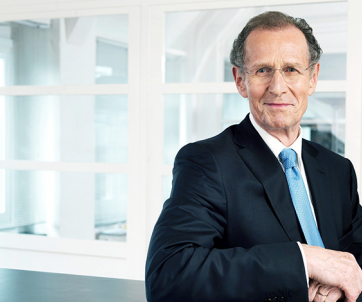
Outsourced climate protection
SMEs often lack the expertise in energy and climate protection issues. Promotion measures should therefore be applied to suppliers utilities.
Guest contribution
Prof. Dr. Bert Rürup, PD Dr. Jörg Lichter
With its surprising decision of March 24, 2021, the Federal Constitutional Court put pressure on German climate protection and energy policy. Whereas in 2019 the political goal was initially formulated of virtually eliminating greenhouse gas emissions in Germany by the middle of the century, climate neutrality is now to be achieved as early as 2045.
Tightening targets alone is no guaranty of policy success. Concrete measures and viable concepts are now required to achieve this rapid reduction in CO2 emissions – under the strictest possible secondary condition of not jeopardizing the performance of the economy or the future viability of Germany as an industrial center.
The hurdles to climate neutrality are undoubtedly high, but not insurmountable. As companies, especially German industry, are among the largest energy consumers and greenhouse gas emitters, they have a central role to play in the transformation of the national economy. Two measures should be at the heart of this exercise: Firstly, the utilities used, such as electricity, heat, cold, compressed air or steam, must be produced with lower CO2 emissions than before; ideally, they would be produced in a completely carbon neutral manner. Secondly, the energy efficiency of business processes, production processes and buildings must be significantly improved.
Both measures would lead to a reduction in energy consumption per unit of production. If this is successful, greenhouse gas emissions can be significantly reduced despite increasing production. Energy consumption and value added are decoupled more than before.
The Handelsblatt Research Institute (HRI), in cooperation with the German Association of Medium-Sized Enterprises (BVMW), has asked small and medium-sized enterprises (SMEs) how willing they are to outsource the upcoming climate protection measures to energy service providers – and thus not making the necessary investments themselves. The majority of the companies surveyed consider climate neutrality to be an opportunity and want to actively tackle the energy modernization of production processes and buildings. However, significantly more than half of the SMEs surveyed are also open to a long-term partnership with external service providers in order to achieve the climate goals.
A decisive advantage of such a "contracting" from the point of view of medium-sized enterprises is the transfer of cost and result risks to the contractor. In this way, the security of supply of utilities can be increased and costs can be planned better. This increases the incentive for companies to modernize their buildings and production processes in an energy-efficient manner.
Against the background of these results, there are good arguments to give contracting, which has been tried and tested for more than 30 years, a greater space than in the past, in order to exploit rapidly and comprehensively, in particular, the major climate protection potential present in small and medium-sized enterprises. The reason: These are often companies that do not have sufficient human and technological expertise in energy supply and energy efficiency. In addition, the management often lacks knowledge about the public funding opportunities for corporate climate protection measures.
As a result, according to the HRI study, three parties benefit: the medium-sized company, the contractor - and not least the environment.
Our Expert










